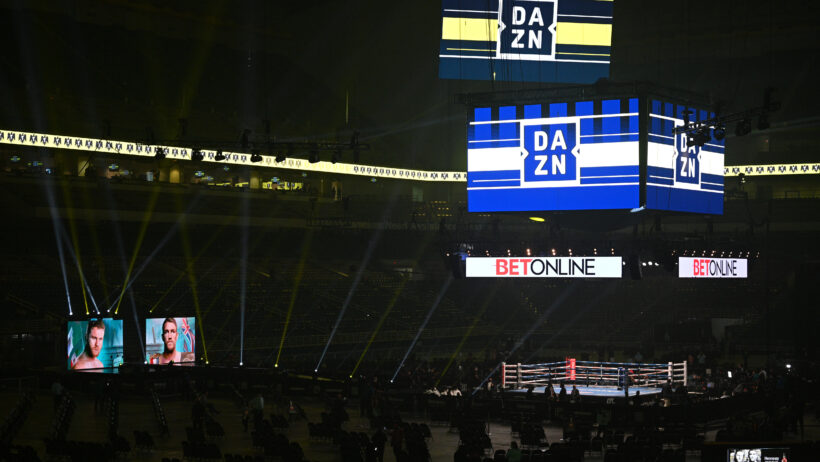Maryland House Committee Contemplates iGaming Bill During Testy Hearing
By Robert Linnehan in Sports Betting News
Published:

- The Maryland House Ways and Means committee had its chance to contemplate iGaming legislation
- Del. Vanessa E. Atterbeary (D-13) noted that the legislation may not need a referendum to be approved
- Cannibalization and the impact on problem gaming rates were both discussed at length
Another day, another multi-hour discussion on potential Maryland iGaming legislation and its impact on revenues, problem gaming, and retail casinos.
Del. Vanessa E. Atterbeary (D-13) today presented HB 13 to the House of Representatives Ways and Means Committee for the legalization of iGaming.
As has been the case in Maryland for the last two years, discussion on the potential legalization centered mainly around revenue estimates and how iGaming may impact business to the state’s brick-and-mortar casinos.
No vote was taken at the conclusion of the hearing.
No Need for Voter Referendum?
Atterbeary’s bill is the House companion to Sen. Ron Watson‘s (D-23) bill, SB 340, which was heard in the Senate Budget and Taxation Committee nearly two weeks ago.
The bills seek to legalize iGaming in the Old Line State. The legislation sets initial iGaming license fees at $1 million, with licenses being valid for five years.
Any license holder will be required by the Maryland Lottery and Gaming Control Commission to submit a diversity plan that “describes the steps that the licensee will take to promote the meaningful diversity among its owners, investors, managers, employees, and contractors to promote equality of opportunity.”
Eligible entities for iGaming licenses would be the holder of a sports betting facility license, video lottery operators, or a gambling company that has maintained a headquarters in the state for the last 10 years.
The bill would tax most online games at a rate of 55%.
Interestingly, both bills include language that requires them to pass by a voter referendum in 2026. Today, Atterbeary noted a voter referendum may not be necessary.
It’s her opinion that a voter referendum will not be necessary as the brick-and-mortar casinos that will house the iGaming servers are already in state. Additionally, voters also approved online sports betting in November 2020, which shows their desire for expanded online gaming.
“The people of Maryland have already spoken and have said, yes, we want gaming,” she said.
If a referendum is necessary, a vote would take place in November 2026 and iGaming likely would not launch in the state until 2027. If one is not necessary and a bill is approved, iGaming could launch in the state much sooner.
The committee will examine moving the legislation forward without a voter referendum, but it is worth noting that the Maryland Attorney General Anthony G. Brown has yet to give his opinion on if a referendum is necessary.
Increased Gaming Revenues vs. Cannibalization/Problem Gaming
The vast majority of the hearing focused squarely on the benefits of iGaming revenue to the state and the potential for increased cannibalization to brick-and-mortar casinos and problem gaming rates.
It’s not a new conversation, as both sides have been arguing these points over the course of the last two years.
On the iGaming legalization side, proponents say the state is turning its back to $1.65 billion in estimated tax revenues over the next five years.
John A. Pappas, speaking on behalf of iDevelopment and Economic Association, pointed to Pennsylvania launching iGaming in 2019 and the impact it’s had on retail casino gaming revenues.
After iGaming was legalized, Pennsylvania retail slot revenues increased by 13.25% and table game revenues increased by 25.1% over the next five years, he said.
An additional 1,000 casino jobs were created through Pennsylvania iGaming legalization as well.
“That’s a testament to how iGaming and land based casinos can grow together,” he said.
Michael Hashe, research and policy director for the Gaming Industry of Unite Here, the largest casino workers union in the country, spoke out against the bill and said it will have an overall negative impact on casino workers. Unite Here represents more than 100,000 casino employees.
In Atlantic City, since 2020 when iGaming exploded the overall casino employee workforce has been reduced by more than 13%, he said.
Tracy Lingo, President of Unite Here Local 7, which represents employees for Horseshoe Casino Baltimore and Ocean Downs, said the union’s stance on iGaming is simple.
“To be very clear, our opposition to iGaming is that iGaming increases revenues to gambling companies, but does not increase employment for jobs,” she said.
Testy Moment During Hearing
One moment of the hearing stood out as Atterbeary had a tense back-and-forth with Mark Stewart, executive vice president and general counsel for The Cordish Companies.
The Cordish Companies owns Live! Casino and Hotel and have been outspoken opponents of legalized Maryland iGaming. Live! Casino and Hotel is partnered with FanDuel for online sports betting in the state.
It’s an interesting position to have, as The Cordish Companies own casinos in states with legalized iGaming and hold several iGaming licenses. Stewart today spoke out against the legislation, saying it would be a detriment to the state, casino employees, and the surrounding communities, but noted that the company would pursue an iGaming license if legal.
“We will do very well, but we think Maryland won’t do very well and we don’t think our employees will do very well,” he said.
Atterbeary described the position as hypocritical.
“So, should we put in the legislation that all of the brick and mortars get a license except Live? Maybe that should go in, since it’s such a detriment to the state of Maryland. Perhaps that’s what we should do,” she said.
Stewart did not respond to the comment.

Regulatory Writer and Editor
Rob covers all regulatory developments in online gambling. He specializes in US sports betting news along with casino regulation news as one of the most trusted sources in the country.



